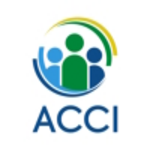
2024 Annual Conference
May 21–23, 2024
Hyatt Regency Milwaukee, Milwaukee, WI, USA
IMPORTANT NOTICE: The date, time, and room assignment of YOUR presentation is SUBJECT TO CHANGE.
Proposal authors can use this tool to see where they have been placed in the program agenda for an Oral or Poster Session.
Scroll down to search by the Submitter or Author Name, by Date/Time, or by Keywords.
Confirm your place in the schedule by following the instructionss that were emailed to you. Each presentation must have a separate paid registration. Contact the ACCI office immedicately by email at admin@consumerinterests.org to report any conflict, all corrections to the details of the presentation (including author names and the order they are listed as this is how it will be in the final program), or if you have any questions. Please be sure to reference the session title(s), date(s), and time(s) when you contact us.
A2c Financial Toxicity in UF Cancer Catchment Area
Short Description
To aid in the fight against cancer, extensive research and innovative clinical therapies are conducted. Oncological treatments are expensive; insurance may not cover all treatment fees, and compared to individuals without a cancer history, cancer survivors have higher out-of-pocket expenses (National Cancer Institute, 2019). Collectively, these hardships are described as financial toxicity.
Financial toxicity results from increased cost-sharing payments, reduced income from the loss of work, and behavioral and psychological responses caused by incurred healthcare expenses (de Souza and Conti 2017). Some insurance policies may cover direct costs, such as physician fees, medication, and hospitalization fees. However, a typical insurance coverage plan may not cover all aspects of a patient’s course of treatment, especially indirect costs not associated with treatment itself. These gaps in coverage leave patients responsible for out-of-pocket (OOP) expenses such as deductibles, and coinsurance payments. Whether one has any insurance (i.e., Medicare, Medicaid), or no insurance, will impact the OOP cost of prescriptions, procedures, and other care needs (Singleterry 2017). With rising costs of cancer treatment in the United States, even patients with health insurance are at risk of experiencing financial toxicity. This study investigates financial toxicity among U.S. cancer patients in the context of overall financial well-being.
Type of presentation
Accepted Oral Presentation